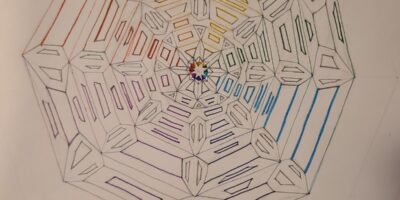Author:
Zarin Maisha
Mentor:
Dr. Joanna I. Giza, PhD
Abstract:
Our memories are stored in spines, which are small protrusions located on the dendritic branches of the neuronal cells. As we learn, these spines become enlarged as the neurons create more efficient synaptic connections. One of the molecules regulating this process is Brain Derived Neurotrophic Factor (BDNF). BDNF induces spine expansion through binding and subsequent internalization of its receptor tropomyosin receptor kinase B(TrkB). BDNF is synthesized in an immature form called Pro-BDNF composed of mature BDNF and a prodomain. After the prodomain is cleaved off, functional BDNF and an independent prodomain are released. Giza et al., 2018 found that the prodomain with human polymorphism with Valine (Val) at position 66 is substituted with Methionine (Met) can shrink spines and eliminate synapses in neurons, an effect opposite to that of BDNF. However, Met prodomain is also found in complexes with BDNF. Our preliminary data suggests that the BDNF in complex with Met prodomain loses its ability to enlarge the spine and instead causes spine shrinkage. We are currently examining the mechanism underlying this switch. Here, we show that the presence of the Met prodomain in complex with BDNF prevents its receptor internalization, necessary for spine enlargement. We are proposing a hypothesis that the BDNF-Met complex retains TrkB on the surface and might instead recruit another co-receptor, which redirects TrkB signaling.

